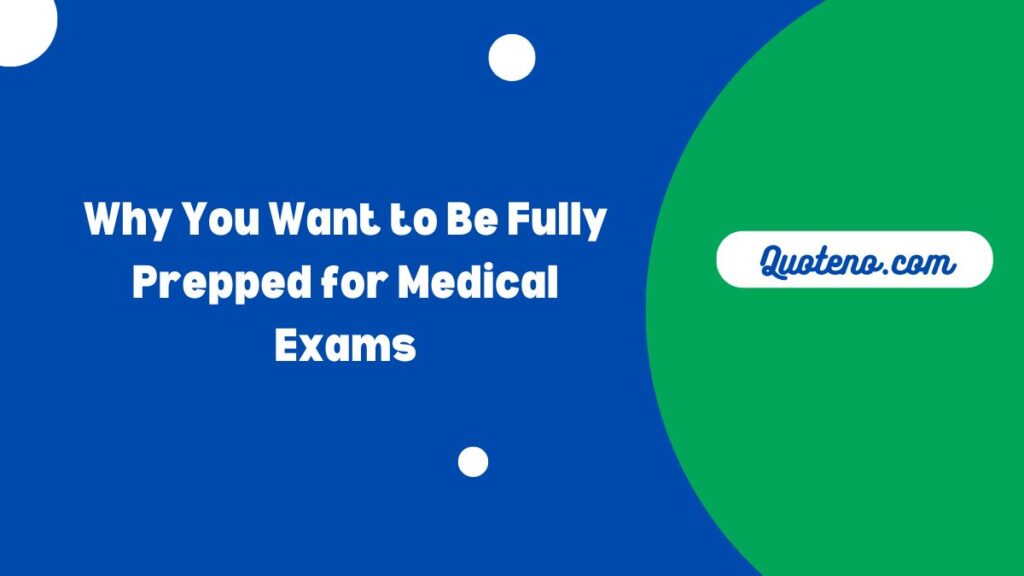Preparing for medical exams is a crucial step in becoming a healthcare professional. Being well-prepared is crucial for success, whether you’re preparing for certification, license, or board examinations. This comprehensive guide will explore the importance of thorough medical preparation and provide valuable insights to help you excel in your exams and advance in your medical career.
Table of Contents
Understanding the Stakes:
Medical examinations are very important to your professional path since they operate as indicators of your proficiency, knowledge, and preparedness to practice medicine. These tests are essential in evaluating your professional qualifications and opportunities, whether you’re a medical student, resident, or practicing physician.
Inadequate preparation for medical examinations can lead to major problems, such as postponed graduation, restricted licenses, and obstacles to professional progression. Furthermore, acing medical tests with flying colors may lead to a host of interesting prospects, including offers for lucrative jobs, fellowships, and specialized training. Understanding the stakes involved underscores the importance of investing time and effort into thorough medical preparation.
Mastering Content Knowledge:
One of the primary objectives of medical preparation is to master the content knowledge required for your exams. Medical examinations can encompass a wide range of subjects, from clinical practice standards to basic sciences, and need a thorough comprehension of intricate ideas and concepts. If you want to do well on your tests, you need to give yourself enough time to study and review the necessary content.
Use resources like online courses, textbooks, review books, and practice problems to ensure you remember important material and confirm your grasp of important topics. To further improve your understanding of difficult subjects, think about organizing study groups or asking mentors and teachers for advice.
Developing Test-Taking Strategies:
Effective medical preparation involves mastering content knowledge and developing test-taking strategies to maximize performance on exam day. Medical examinations sometimes include distinct formats, such as multiple-choice questions, clinical vignettes, and practical simulations, all of which require certain strategies and methods.
Elite Medical Prep suggests practicing sample questions under timed conditions to simulate the exam environment and improve your time management skills. To improve the likelihood that you will choose the right answer, familiarize yourself with typical question structures and techniques for removing wrong answer options. To obtain helpful tips and techniques, consider consulting professors or fellow students who have completed exams similar to yours.
Managing Test Anxiety:
Test anxiety is a common challenge faced by many individuals preparing for medical exams, and it can significantly impact performance if left unchecked. Test anxiety symptoms could consist of racing thoughts, tense muscles, and trouble focusing, all of which can make it difficult for you to provide your best effort. To successfully handle exam anxiety, incorporate stress-reduction strategies like progressive muscle relaxation, mindfulness meditation, and deep breathing exercises into your study routine.
To enhance your physical and mental well-being, set up a regular study plan and prioritize self-care tasks like getting enough sleep, eating a balanced diet, and exercising regularly. Additionally, cultivate a positive mindset and confidence in your abilities, recognizing that you have worked diligently to prepare for success.
Utilizing Practice Exams and Feedback:
Practice exams are invaluable tools for medical preparation. They provide opportunities to assess knowledge, identify areas of weakness, and refine test-taking strategies. Use the practice examinations provided by internet platforms, educational institutions, and professional associations to determine your level of preparedness and monitor your development over time.
After finishing the practice tests, examine your performance carefully to identify any mistakes or weak points. Ask classmates, instructors, or mentors for advice on how to enhance your performance and identify areas for growth. Utilize feedback constructively to refine your study plan and address any gaps in your knowledge or skills.
Staying Motivated and Focused:
Maintaining motivation and focus throughout the medical preparation process is essential for success. To keep yourself responsible and motivated, set clear, attainable goals for your study sessions and monitor your progress regularly. Celebrate your little achievements along the path to strengthen your self-assurance and reinforce your dedication to reaching your objectives.
Look for sources of encouragement to stay motivated and encouraged when things get tough. Maintaining your motivation can help you push through challenges and endure the demands of medical preparation. Some strategies to do this include thinking about your future success, reaching out to mentors and role models, and connecting with individuals who share your ambitions.
Conclusion
In conclusion, thorough medical preparation is essential for success in your exams and advancement in your medical career. You can set yourself up for success and accomplish your goals in the medical sector by being aware of the risks, becoming an expert in the subject matter, learning effective test-taking techniques, controlling test anxiety, using practice examinations and feedback, and being motivated and focused.
Commit to investing time and effort into your medical preparation, knowing that your dedication will pay off in the form of increased knowledge, confidence, and opportunities for growth and advancement.
- 5 Must-Visit Travel Destinations to Enrich Your Knowledge of History and Culture - May 17, 2024
- 5 Services Your Small Business Needs ASAP - May 13, 2024
- Maintaining Home Integrity: The Unseen Value of Gutters - May 13, 2024

